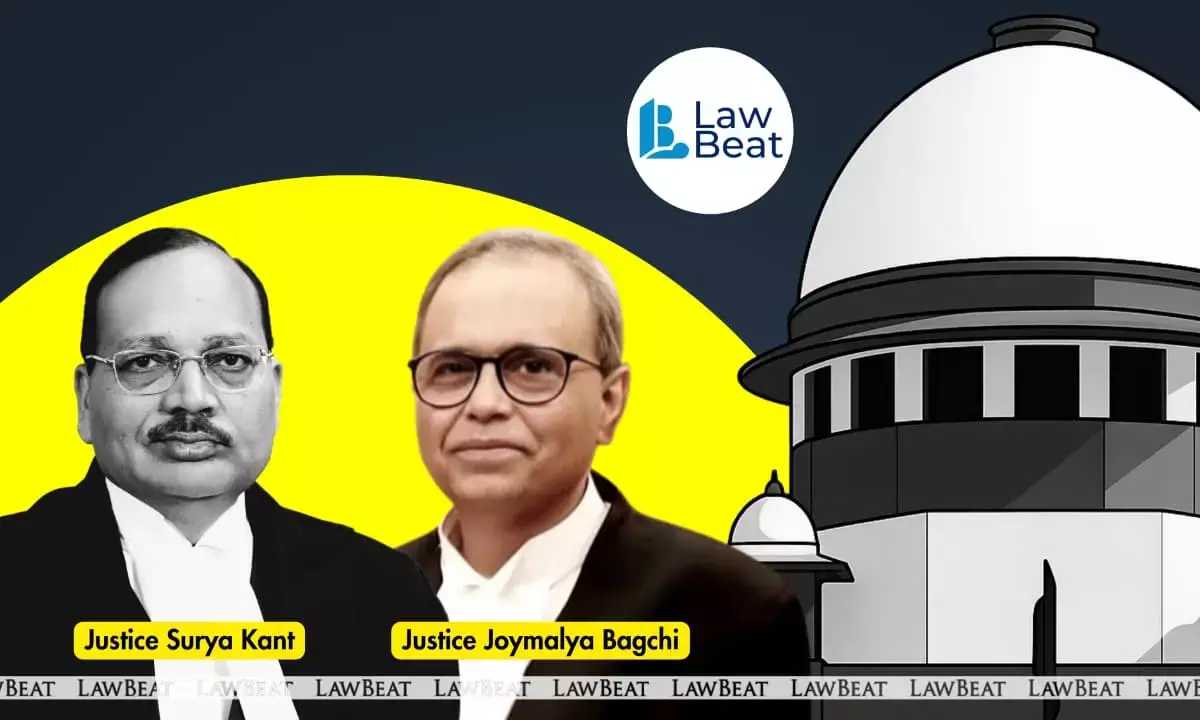Courts Can Intervene in Tenders Only If Decision Is Arbitrary or Beyond NIT: SC Sets Aside Allahabad HC Order

The Supreme Court says court power in tender disputes is limited, calls bid rejection arbitrary
The Supreme Court on October 31, 2025 said that courts can intervene in tender disputes only when the decision of a tendering authority is arbitrary or goes beyond the terms of the tender document, setting aside the Allahabad High Court’s order that had upheld the disqualification of a bidder on a ground not mentioned in the tender itself.
A bench of Justices Surya Kant and Joymalya Bagchi made this observation while allowing an appeal filed by Kimberley Club Pvt. Ltd. against the Krishi Utpadan Mandi Parishad, which had rejected the company’s technical bid for a ten-year lease of a banquet hall and terrace lawn in Lucknow. The Parishad had cited that the company’s “haisiyat praman patra” (solvency certificate) was not issued by a District Magistrate.
Emphasising the limits of judicial review in contractual matters, the bench noted, “In tender matters, the court exercising judicial review does not sit in appeal over the decision of a tendering authority regarding disqualification of bid. Only in cases where such decision is dehors the terms of the NIT or is patently arbitrary would the Court exercise powers of judicial review.”
Court held that the present case fell squarely within this exception, as the Mandi Parishad’s rejection of the bid was based on a requirement not mentioned in the Notice Inviting Tender (NIT).
The dispute originated from a tender floated by the Mandi Parishad for leasing a banquet hall and terrace lawn for ten years to the highest bidder. The NIT prescribed a two-stage process, technical and financial bids, and required bidders to submit a “haisiyat praman patra” worth at least Rs. 10 crores with their technical bid.
Kimberley Club submitted a valuation certificate issued by a registered architect and Income Tax Department valuer, showing ownership in an asset valued at Rs. 99 crores. However, the Parishad disqualified its bid, citing that the solvency certificate was not issued by a District Magistrate, as envisaged under a 2018 Uttar Pradesh government notification prescribing procedures for such certificates.
The company challenged this before the Allahabad High Court, which dismissed its petition, holding that the certificate had to come from the District Magistrate. The High Court accepted the Parishad’s stand that the document issued by a private architect could not substitute a “haisiyat praman patra".
Before the Supreme Court, the appellant argued that neither Clause 18 of the NIT nor any other clause stipulated that the solvency certificate must be issued by a District Magistrate. It contended that the Parishad introduced an extra condition that was never part of the tender document. The Parishad, in response, claimed that all other bidders had submitted certificates issued by the District Magistrate and that the appellant’s valuation certificate failed to indicate whether the asset was free from encumbrances.
Rejecting these arguments, the Supreme Court held that tender conditions must be “clear and unambiguous” and cannot be supplemented by implied obligations later. “If the Mandi Parishad intended that the ‘haisiyat praman patra’ must be issued by the District Magistrate, it ought to have stated so expressly in the NIT,” the court said. It added that the Parishad, being a statutory body under the U.P. Krishi Utpadan Mandi Adhiniyam, 1964, is not automatically bound by the state government notification relied upon to justify the rejection.
The bench also noted that a new justification raised later in the litigation, that the valuation certificate did not disclose encumbrances, could not stand, as administrative decisions must be judged on the original grounds cited. Citing Mohinder Singh Gill v. Chief Election Commissioner (1978), the court reiterated that new reasons cannot be introduced subsequently to sustain a defective order.
Holding that the rejection of Kimberley Club’s bid was outside the scope of the NIT and thus arbitrary, court quashed the Mandi Parishad’s decision as well as the Allahabad High Court’s judgment. The matter was remanded to the Mandi Parishad to reconsider the company’s technical bid.
Court directed that if the valuation certificate submitted by Kimberley Club establishes assets worth at least Rs. 10 crores, the Parishad must accept the bid and, after negotiations between Kimberley Club and the successful bidder, decide whether to award the remainder of the contract to the appellant or permit the existing bidder to continue.
With these directions, the appeal was disposed of.
Case Title: Kimberley Club Pvt Ltd Vs Krishi Utpadan Mandi Parishad
Judgment Date: October 31, 2025
Bench: Justices Surya Kant and Joymalya Bagchi
